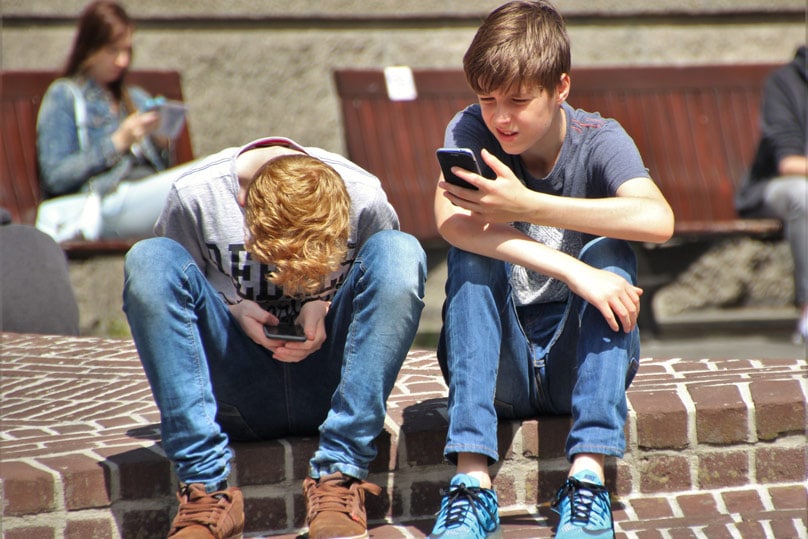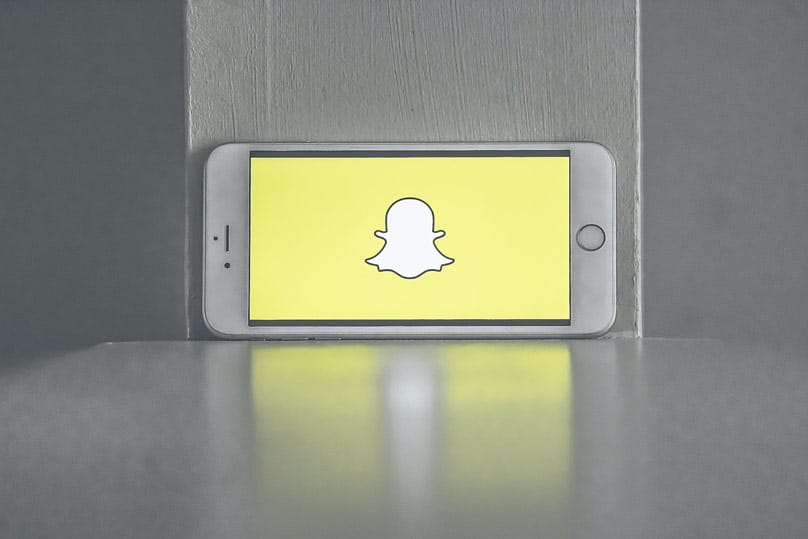
NSW Catholic education authorities and parents have welcomed Australia’s first review into the use of smartphones and other devices by students while at school.
The state government review is a response to concerns about smartphones in schools and their links to child safety and cyberbullying.
Catholic Schools NSW (CSNSW) chief executive officer Dallas McInerney said the review was not only timely but “sensible and necessary.”
The prevalence of smart phones among students during school hours has introduced some benefits, along with distractions and threats which include cyberbullying and anti-social behaviour, he said.
“As education leaders, it is our responsibility to understand how smartphones and other hand-held devices impact student learning and wellbeing, and to put in place any policies that are needed to help improve these situations,” he said.
Mr McInerney said each Catholic school sets its own policy on the use of devices during school hours and that the review would be an important vehicle for gathering information which principals can then use to make informed decisions.

Linda McNeil, executive director of the Council of Catholic School Parents NSW/ACT, said that Catholic school parents welcome the government’s review into mobile phone use at schools “because it is such a complex problem”.
“We understand that while they can be abused, they are also effective learning tools particularly in secondary and especially for students with additional needs”.
The council is concerned that the prevalence of smartphone use among children and teenagers is a distraction during class time and has been shown to be linked to the rise in their rates of depression.
It also says mobile phone use during the school day can foster an over-dependence upon parents in younger pupils, but any decision to ban smartphones should be made at the school level based on the context of the school and in consultation with parents.
Dr Dan White, executive director of Sydney Catholic Schools, said that it considered smartphone use in schools as principally a tool for learning and communication, and that each school set its own policies.
He welcomed the review but said he hoped it will include all devices as well as the impact of social media platforms on students.
“Issues of cyberbullying and distraction come with all digital technology and social media platforms,” he said.
“Each platform has its own limitations as well as assistance with learning, but the nature of them can impact on the tone and frequency of communications.
“For example, a tweet, because they are written in shorthand, can be easily misinterpreted and sometimes cause distress in some students.”
Psychologist Dr Michael Carr-Gregg will lead the review at the request of the NSW Education Minister Rob Stokes.
He is yet to receive the terms of reference but he hopes to form a panel of experts, examine research and the world’s best practice, and take submissions before reporting back with suggestions for smartphone guidelines in schools.

The review is necessary because of the inconsistent practices of schools with “no science behind it”, he told The Catholic Weekly.
“Principals are experimenting with different things and we’ve got to have something that’s a bit evidence-based,” he said.
The most pressing reason is that child safety is at stake, he said.
“Schools have a legal responsibility to provide their schools with a safe environment in which to learn.
“The e-Safety Commissioner reports a 28 percent increase to her office regarding cyber-bullying and 42 percent of kids have been contacted by complete strangers online, so this is a safety issue, it’s about a danger to the wellbeing of our young people.”
He believes that there are pros and cons to smartphone use during class hours.
“Educators have told me that they make an enormous difference when used correctly,” he said.
“I think rather than a complete ban, perhaps in secondary schools there might be the facility for teachers to tell kids you can bring your mobile phones to this particular class and use it for this purpose.
“The great thing about this is that whatever is recommended, for example using ‘dumb phones’ only in primary schools, any principal who implements that will have the backing of the Education Department and the minister,” he said.
Parent Neisha Licitra said it helps that her children have consistent rules at school and at home about responsible use of their smartphones.
“At my daughter’s high school, the girls are not allowed to use their mobiles for personal use and will have their phone confiscated if they are found using them,” she said.
“Sometimes they are asked to use them in class for educational purposes but this is closely monitored. We like this policy and my daughter is happy to comply because we also have rules at home.
“My children are not allowed to bring their mobile phones to the dinner table or have them in their rooms once they go to bed.”
Mr McInerney said smartphones and other devices were part of the 21st century and their use by students was well-entrenched.
“What we need to consider is whether it’s beneficial to continue that use during school hours or restrict it, and how any restriction would work and be enforced.”
Last September France became the first country in the world to ban smartphones in schools for students up to about the age of 15.
World education expert Dr Pasi Sahlberg, from the University of NSW, recently called for a similar ban in NSW primary schools.
